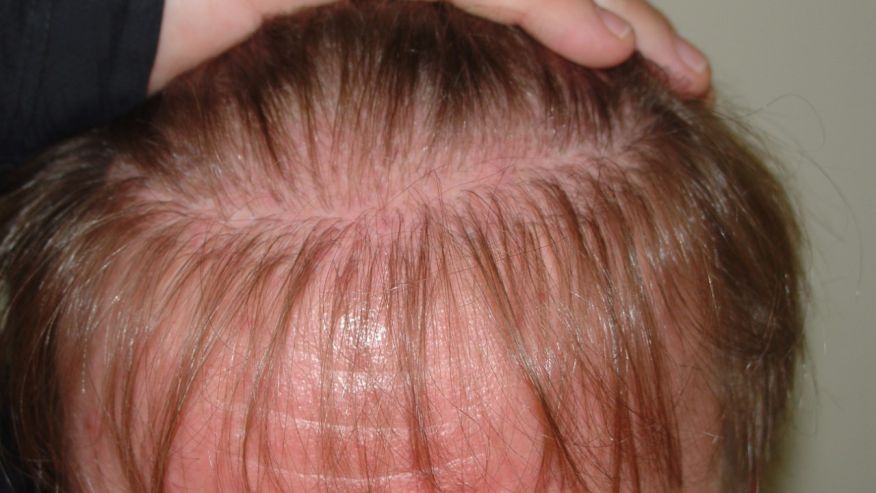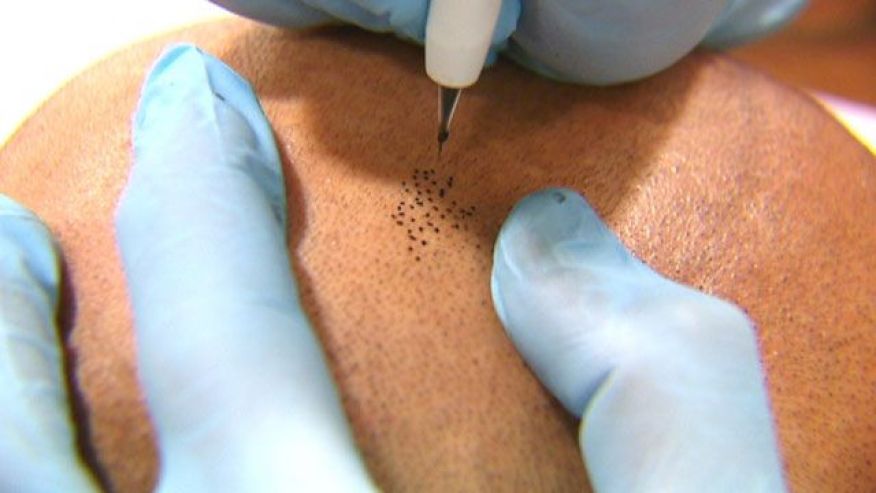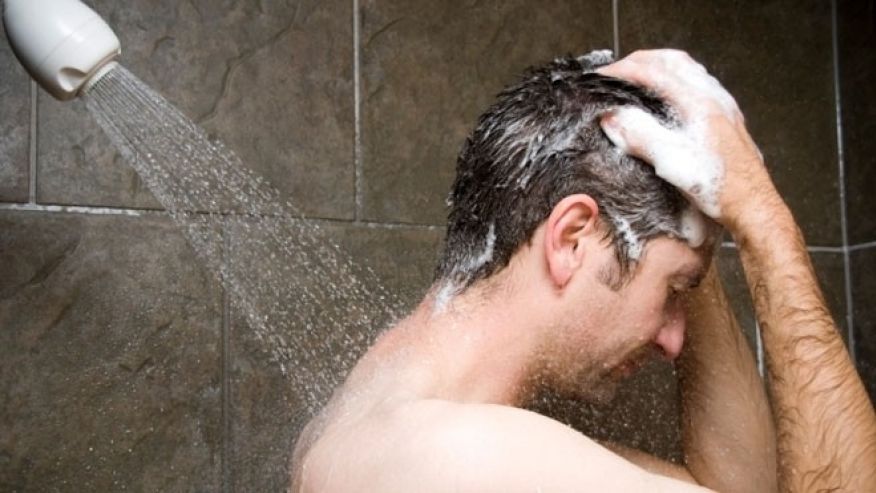
It may be the largest organ in the human body, but too many of us neglect our skin by failing to understand what it really needs to stay healthy. We spoke to Consultant Dermatologist and British Skin Foundation spokesperson Dr Anjali Mahto to find out what we should be doing to give our skin that extra bit of TLC:
1. Disinfect your phone screen regularly
“Touchscreens of smartphones contain large numbers of bacteria on their surface. Placing your phone against your cheek creates pressure that may activate your oil-producing or sebaceous glands. Combine this with heat generated from the phone and bacteria on the phone surface, and acne can result. It is therefore a good idea to keep antibacterial wipes handy and regularly clean your phone.”
We’ve all heard the rumours that our mobile phone screens carry more bacteria than a toilet seat but could that really be true? Disturbingly, the answer is YES. British watchdog Which? decided to investigate just how much bacteria can be found on our phones (and other personal devices) compared to the toilet seat. They discovered that not only could the amount of bacteria found on our mobiles be damaging our skin, but it could also putting our general health at serious risk.
According to the Health Protection Agency any count of between 20 and 10,000 units for Staphylococcus aureus (can cause a severe stomach bug) as a potential risk. They found that your phone could be home to up to 140 units.Toilet seats had on average less than 20.
If you’re as disgusted as us by those findings, we recommend carrying anti-bacterial wipes with you, and regularly giving your phone a good clean.
2. Avoid overly hot showers
If you’re trying to convince yourself that a hot shower is better for you because it more effectively gets rid of bacteria, sadly you’re deluding yourself. Most bacteria is killed off in 140 degrees Fahrenheit or higher, which could leave you with some quite serious burns.
Exposure to very hot water strips away the natural oils and throws off your skin’s protective layer that can lead aggravate conditions like eczema, psoriasis and acne and even lead to infection.
“It can be tempting to take long, hot showers – particularly so in the autumn and winter months when the weather becomes cooler and temperatures start to drop. The combination of water and soap or shower gel can lead to moisture loss from the surface of the skin and disruption of the skin’s barrier resulting in dryness or irritation. Those with underlying inflammatory skin disorders just as eczema or psoriasis need to be extra cautious. Showers should ideally be no longer than 10 minutes with tepid water.”
If you experience dry and itchy skin, try turning the temperature down while you wash and see if it makes a difference.
3. Wash your make up brushes
Actually, make that any utensil you regularly use on your face, including tweezers, sponges and face clothes and razors.
“Make up brushes often aren’t looked after properly and are a breeding ground for bacteria. Many laboratory-based tests where make up items have been swabbed have shown the growth of all sorts of different microbes that can cause infection. Despite this, the majority of women do not clean their make up bags or cosmetic products on a regular basis. Make up brushes should be cleaned at least on a monthly basis – which many women neglect to do. Otherwise bacteria can build up on the surface from constantly being in contact with our skin.”
According to a survey by leading global cosmetic brush design and manufacturing company Anisa International, 22% of women admit to never cleaning their brushes, with most of them not actually being aware that they need to. Well… you need to!
Anyone who’s bought decent makeup brushes knows that they don’t come cheap, so why spend all that money and effort just to turn it into a bacteria-spreading stick that clogs your pores and contributes to breakouts?
If you’re one of the 31% of millennials who don’t know how to clean their makeup tools, or you simply want to check you’re doing it correctly, there are a number of easy to follow Youtube videos out there to help you.
4. Don’t overexfoliate
Exfoliating your skin is a great way to get rid of dead skin cells and dirt that’s built up on your face and body… but you can overdo it. Exfoliating too often, or too rigorously, can remove skin cells prematurely leaving your skin exposed and more prone to damage. Signs that you’re over-doing it include excess dryness, redness, irritation and sensitivity. It’s also worth keeping in mind that the time it takes for cell regeneration increases as we age, taking roughly 28 days for young adults, but for those over 50 it’s actually double that. So the older we get, the more damage over-exfoliating can do.
If you’re guilty of scrubbing too hard – or too often – the best way to deal with it is to apply products that contain ingredients like green-tea, aloe vera or cucumber extract for their soothing properties. How often you should be exfoliating will depend on your skin type, especially as our face tends to be far more sensitive than the rest of your body.
5. Shower after exercise
Washing after a workout does more than prevent a rather stinky reputation, it can do wonders for your skin too. Exercise itself increases bloodflow, which keeps all our cells nourished, including our skin. That being said, you should avoid putting off showering or bathing until later in the day because it could be wasting all the good you’ve done for your body. Even if you haven’t got particularly sweaty, you should still fight the urge to skip the après-gym soak.
“Raised body temperature, sweat blocking pores and friction from clothes rubbing against the body combined by bacterial action can result in acne, particularly over the back and chest. To reduce the risk of this, it is important to shower and change into fresh clothing as soon as possible after exercise. Using body washes containing salicylic acid can be helpful to those prone to spots following exercise.”
If a shower is really not possible, use wet wipes to clean certain ‘high-priority’ areas like the armpits, inner elbows, back of knees, the bum and of course under the boobs.
6. Spot treat your face
Just like your body, your face is likely to have slightly drier/oilier patches (e.g. the ‘T-zone’). Therefore it doesn’t necessarily make sense to use the same product across your entire face (moisturisers, cleansers, etc) but treat each area with a more tailored approach. Although you might think this will simply lead you to spending more money on products with minimal difference, you will be using less of each product, and you’ll be able to find what your face responds to properly.
“If you are prone to the occasional acne spot or blemish that it can be useful to use spot targeted therapy to reduce inflammation and redness. Common helpful over the counter products that can help often contain zinc, salicylic acid, benzoyl peroxide or tea tree oil. Steroid injections from a dermatologist can treat large, stubborn solitary acne cysts if a rapid response is required e.g. before an important social event. These should only be done with a registered dermatologist as there are potential risks if carried out in the hands of a non-specialist.”
[“source=netdoctor”]






















